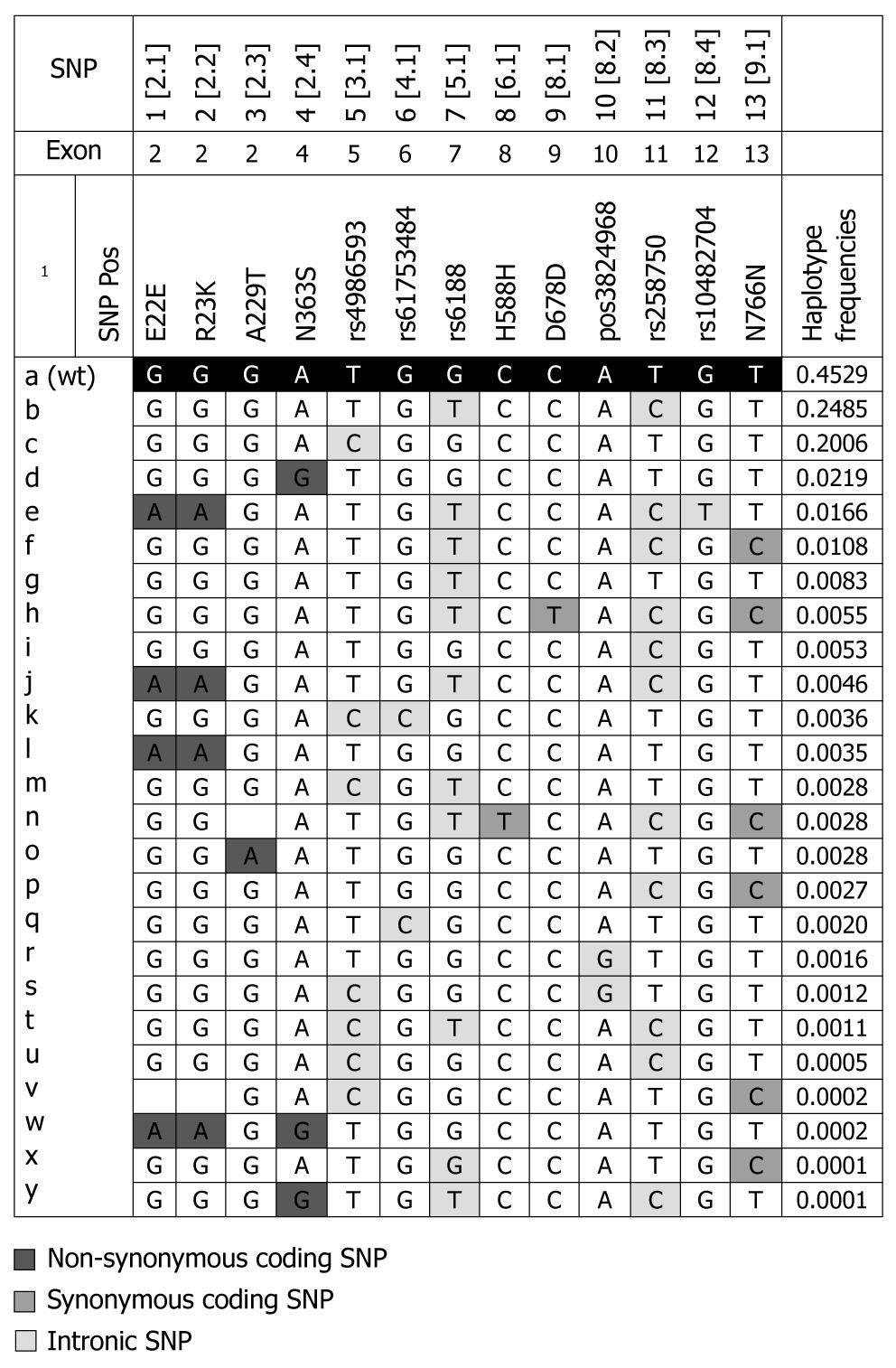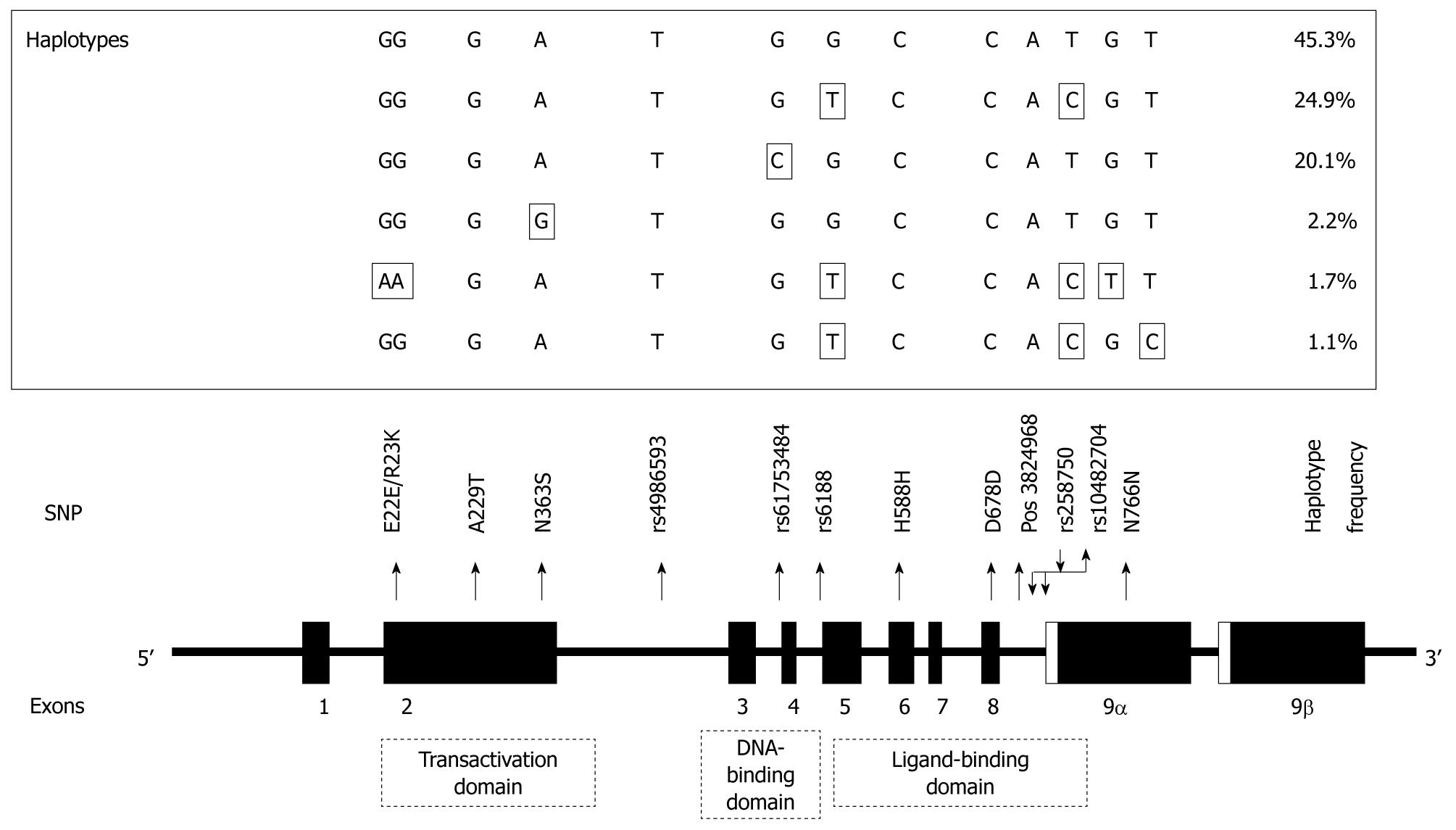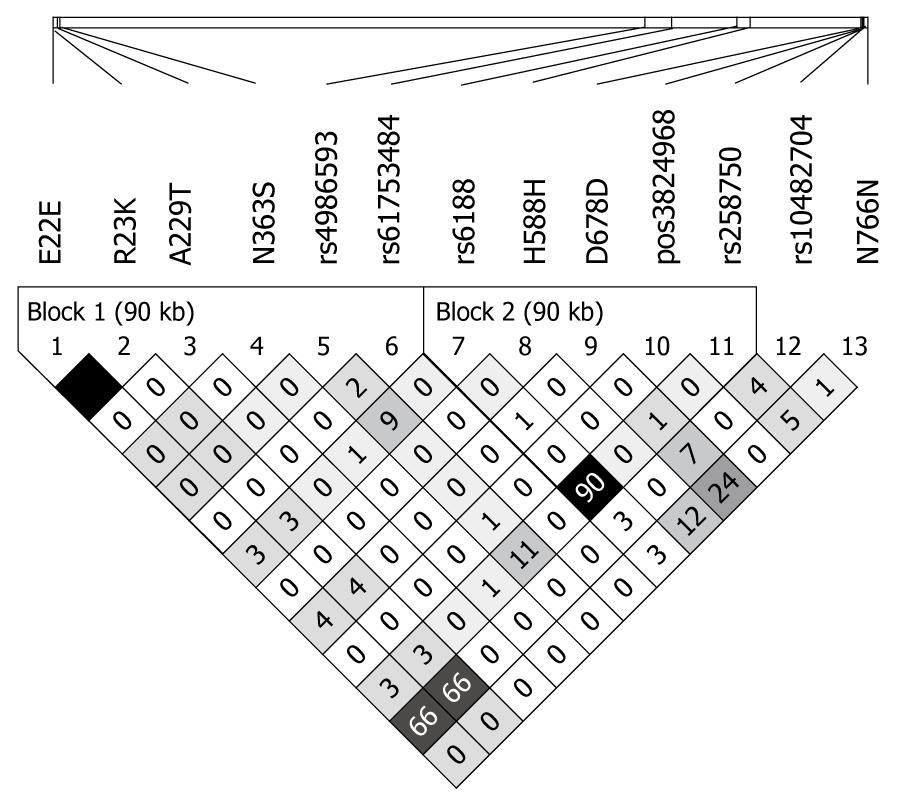Copyright
©2010 Baishideng.
World J Gastroenterol. Aug 21, 2010; 16(31): 3888-3896
Published online Aug 21, 2010. doi: 10.3748/wjg.v16.i31.3888
Published online Aug 21, 2010. doi: 10.3748/wjg.v16.i31.3888
Figure 2 NR3C1 haplotypes predicted by PHASE in the cohort of 181 inflammatory bowel diseases patients.
1Counter (a to y) for the 25 theoretically arising haplotypes in the inflammatory bowel diseases cohort. SNP: Single nucleotide polymorphism.
Figure 1 Most frequently occurring NR3C1 haplotypes and their single nucleotide polymorphisms composition.
The localization of the variant nucleotides in the N3RC1 gene is indicated. All detected non-synonymous single nucleotide polymorphism (SNP) (R23K, A229T, N363S) flank the N-terminal transactivation domain. Only four out of 17 predicted haplotypes occur at a frequency higher than 2%.
Figure 3 Linkage disequilibrium calculations of single nucleotide polymorphisms in the NR3C1 gene.
Linkage disequilibrium plot of r2 values of observed variants in the N3RC1 gene. Colour scheme: r2 = 0%, white, 0% < r2 < 100%, shades of grey, r2 = 100%, black.
Figure 4 Haplotype GR_2 and steroid therapy outcome.
Odds ratios and confidence intervals for the number of GR_2 carriers vs wild-type carriers in the responder group compared with non-responders to glucocorticoid therapy. No significant associations were found. Statistical analysis was performed with Fisher’s exact test. OR: Odds ratio; CI: Confidence interval; CD: Crohn's disease; UC: Ulcerative colitis.
Figure 5 Haplotype GR_3 and steroid therapy outcome.
Odds ratios and confidence intervals for the number of GR_3 carriers vs wild-type carriers in the responder group of responders compared with non-responders to glucocorticoid therapy. No significant associations were found. Statistical analysis was performed using Fisher’s exact test. CD: Crohn's disease; UC: Ulcerative colitis; NA: Not applicable.
Figure 6 NR3C1 variants and their influence on steroid therapy outcome.
Odds ratios and confidence intervals for carriers of six single nucleotide polymorphisms against wild-type carriers in the group of glucocorticoid (GC) responders compared with GC non-responders. No significant associations were found. Statistical analysis was performed using chi-square or Fisher’s exact test.
- Citation: Mwinyi J, Wenger C, Eloranta JJ, Kullak-Ublick GA. Glucocorticoid receptor gene haplotype structure and steroid therapy outcome in IBD patients. World J Gastroenterol 2010; 16(31): 3888-3896
- URL: https://www.wjgnet.com/1007-9327/full/v16/i31/3888.htm
- DOI: https://dx.doi.org/10.3748/wjg.v16.i31.3888














